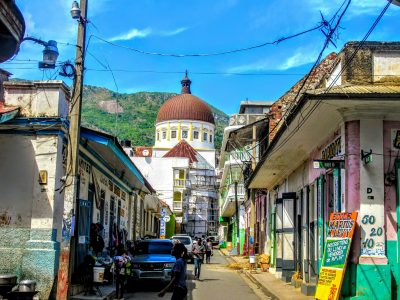Haiti Needs Justice, Not Charity: A Call for Reparations

Haitians are religious and spiritual (Patrice S Dorsainville, Unsplash)
Haiti Needs Justice, Not Charity: A Call for Reparations
In the wake of the devastating 2010 earthquake, Haiti received an outpouring of international aid. Yet, despite billions pledged, the nation’s recovery has been hindered by systemic issues rooted in a history of exploitation and injustice.
A Legacy of Exploitation
Haiti’s challenges are not solely the result of natural disasters. The nation’s history is marred by centuries of colonial exploitation, beginning with the arrival of Christopher Columbus in 1492. The indigenous Taíno population suffered under Spanish rule, and by 1517, African slaves were being imported to replace the decimated native workforce.
Under French colonial rule, Haiti became the most prosperous colony in the New World, largely due to the brutal exploitation of enslaved Africans. The colony’s wealth was built on the backs of those who were denied freedom and subjected to inhumane conditions.
The Cost of Independence
Haiti’s fight for independence culminated in 1804, making it the first nation born from a successful slave revolt. However, in 1825, France demanded reparations for its lost “property,” including slaves, forcing Haiti to pay 150 million francs (approximately $21 billion today). This debt crippled Haiti’s economy, setting the stage for persistent poverty.
The Ineffectiveness of Aid
While international aid has provided temporary relief, it often fails to address the underlying issues that persist. Much of the aid bypasses local institutions, leading to a lack of accountability and sustainable development. Furthermore, the focus on charity overlooks the need for systemic change and restitution.
A Call for Justice
Haiti doesn’t need more charity; it needs justice. This includes:
-
Reparations: France must acknowledge and repay the unjust debt imposed on Haiti.
-
Debt Cancellation: International financial institutions should cancel Haiti’s existing debts to allow for economic recovery.
-
Empowerment of Local Institutions: Aid should support and strengthen Haitian-led initiatives to ensure sustainable development.
-
Transparency and Accountability: Donors must be transparent about how funds are spent and involve local communities in making decisions.
Conclusion
To truly support Haiti, the international community must move beyond temporary aid and address the historical injustices that have hindered the nation’s progress. Justice, in the form of reparations and systemic change, is essential for Haiti’s future.(Inter Press Service)
Note: This article draws upon historical accounts and analyses to highlight the need for justice in Haiti’s recovery efforts.
Campaign for Haiti’s Restitution: http://www.ipetitions.com/petition/restitution4haiti/
